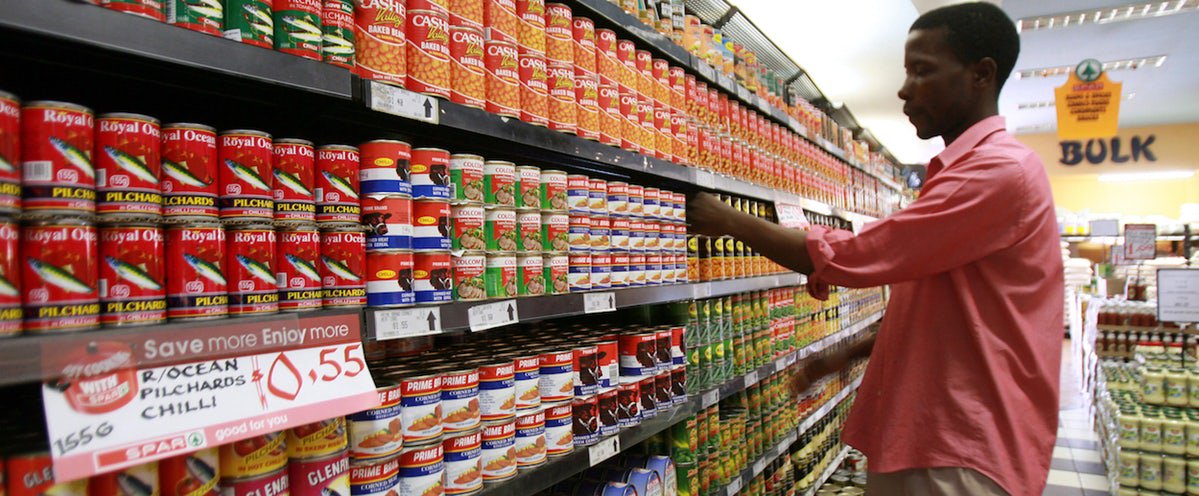Most Retailers in Bulawayo have complied with a government directive to trade in the local currency following the suspension of the multi-currency regime.
A survey conducted by CITE in the Central Business District, revealed that most businesses had removed the three-tier pricing system and were now charging their goods and services in the local currency.
There was no activity at some fuel stations which sold their product in foreign currency.
At Western Union, the tellers said they still paid out US dollars to receivers and would likely continue although they had not received any communication from authorities.
Some of the panic-stricken residents who were conducting their business in the city centre told this publication that they did not have confidence in the local currency which brought back memories of the 2008 era.
In interviews with CITE, residents said the government ought to have been sincere and advised people that the Zimbabwe Dollar was coming sooner rather than later.
“Government reverts to a Zimbabwean currency that we don’t even know. Authorities should have first introduced the ZimDollar in the system before total withdrawing foreign currency, I think this was going to be the best idea. Now we are stuck with the RTGS$ that has no power and weaker against other currencies,” lamented Abson Ncube.
Thandeka Ncube who was in a fuel queue, said from the look of things, the government was running experimental policies that would fail.
“Initially the reason they introduced the multi-currency was to stabilise the economy, now they revert back to the old system, which to me in their words will not work. How do you wake up one day and decide you want to criminalise business activity, what happens to those businesses?
“I think we are led by clueless government who are gambling with our lives,” she claimed.
Another resident, Daniel Jani said he was not sure of what to make of the Statutory Instrument 142 of 2019.
“It’s like a cricket match when you bat, you have to be good with bowling as well. The reintroduction of the ZimDollar depends on what they are putting on the table against what happens on the ground. We have seen this before and we know what we are talking about.
“I’m just hoping this time around they know how to cover it us because definitely what we went through last time wasn’t good,” he said.
His words were echoed by Alfred Dzirutwe who noted that people now had more questions than answers
“Legally are they allowed to come up with Statutory Instruments without consulting parliament as the constitution states but we have a minister and a president who just announce. In terms of the effects I am not sure. We have been in bad situations already and I don’t see how this latest pronouncement will fix the situation. It will make matters worse and for them to ban use of the US dollar is a first in the history of histories, when it is an international tool of trade.”
With this move, Zimbabwe seeks to join only 11 other countries that have successfully de-dollarised in the past.
Another 31 countries have tried to de-dollarise and have failed.
When the ZimDollar was in use, hyperinflation peaking at an ‘astounding’ monthly rate of 79.6 billion percent in mid-November 2008 and at that point, people simply refused to use the currency, resulting in the adoption of the multi-currency system where hyperinflation stopped.
Confederation of Zimbabwe Retailers President Denford Mutashu told CITE that they were ready to embrace the local currency.
“We were always going to come to this point, where we have our own currency, gain sovereignty and increase capacity of the Reserve Bank of Zimbabwe (RBZ) to be the lender of last resort. The foreign currency was creating distortions as long as people were transacting in it at a public level and this was always sustaining the demand for forex by manufacturers and other sectors. Its use was also creating the fictitious and fallacious black market exchange rate.
“We encourage retailers to embrace this and stop forthwith to demand US dollars and in the southern part of the country, they must also stop charging in Rands. We also encourage consumers not to resort to panic buying,” he said.
Mutashu added they also welcomed, “the support measures to stabilise the interbank foreign currency market by central bank Governor, Dr John Mangudya, who promised to inject US$300 million, as this will address production concerns.”
He also warned the businesses who have been reportedly removing goods from shelves to desist from such ‘malicious malpractice’ and comply with the law.
Mutashu highlighted there was a need to quickly work on confidence building measures around the new currency and also deal with the political side of the economy.
“We further urge the RBZ to exercise restraint and prudence with the printing machine to safeguard the value of the ZimDollar while the Ministry of Finance should desist from inconsistent policy pronouncements that has dented trust and confidence in the past,” Mutashu said.

